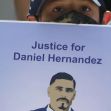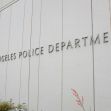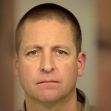An off-duty Los Angeles police officer shot and killed a schizophrenic man who shoved him from behind and knocked him to the ground when he was sampling a sausage at Costco. The officer said he “believed” the man had a gun and that he was “acting within the scope of his employment” when he shot him and injured his two parents. The jury disagreed, finding that the police officer’s use of “excessive force was not reasonable” and determined that the City is liable for $17,002,000 dollars.
This case centered on the question of whether and under what circumstances the City would be responsible and must pay for the actions of an off-duty member of the Los Angeles Police Department (LAPD).
After the verdict, the City of Los Angeles appealed, but Judge Jesus G. Bernard United States District Court for the Central District of California denied its motion for a new trial and the reversal of the lower court’s ruling as a matter of law. He said, “A jury, viewing the evidence in the light most favorable to Plaintiffs and drawing all inferences in their favor, could reasonably find that Mr. Sanchez’s desire to protect his son overlapped with his duties as a peace officer. Because he acted, at least in part, as a police officer, his actions were not ‘purely’ motivated by self-interest.”
In addition, Bernard noted that “California courts have rejected drawing a hard line between on-duty and off-duty actions to determine employer liability” and “there is no presumption against vicarious liability solely because an officer is off-duty.
A three-justice panel of the Ninth Circuit, composed of Judges Morgan Christen, Jennifer Sung and Kim Wardlaw unanimously affirmed the district court’s decision on October 16.
The case began in June, 2019 when the deceased man, Kenneth French, 32, was killed by Salvador Alejandro Sanchez, who was then an off-duty police officer who was carrying his infant son in his arms in Costco. French’s parents Paola and Russel French, who were also shot and injured, sued the City, which argued that Sanchez was not “act(ing) in the course of his employment.” Los Angeles argued that this was proven since Sanchez “was off-duty, out of uniform, and shopping with his family.” The jury disagreed.
The City’s appeal was based on what they termed several prejudicial errors.
First, it claimed that the district court erred when it excused Sanchez from testifying because they expected he would “validly invoke his Fifth Amendment privilege against self-incrimination.” Sanchez did answer a series of questions “on paper” and portions of his answers and his videoed deposition were played at trial. The trail judge also “allow(ed) the jury to draw adverse inferences on a question-specific basis.” The Ninth Circuit said it need not decide whether the district court erred when it did not make Sanchez testify in person because even if the district court was incorrect, “the errors did not materially affect the verdict.”
The Ninth Circuit also faulted Los Angeles for its failure to add additional questions to those Sanchez had already answered on the video. For example, his video responses already contained his contention that he was “not acting within the course and scope of his employment” at the time of the shooting.
Second, the City’s appeal claimed that the district court wrongly allowed a “scope of employment jury instruction according to California’s Civil Jury Instructions, No. 3720. This Instruction requires that “a nexus must exist between the employment and the tort if the employer is fairly to be held liable.” It states that “the plaintiff must prove that the agent was acting within the scope of his employment when the plaintiff was harmed. “ In addition, it says that such conduct would be within the scope of employment if “it is reasonably related to the kinds of tasks that the employee was employed to perform or it was “reasonably foreseeable in light of the employer’s business or the employee’s job responsibilities.”
The Ninth Circuit cited several precedents that allowed them to determine that the district court did not err when it approved that jury instruction.
Third, the Ninth Circuit found that the district court did not err when it denied the City’s “renewed motion for judgment as a matter of law.” It found there was substantial evidence to support the jury’s conclusion that “Sanchez was acting within the scope of his employment when he shot the Frenches. The opinion explained that this motion could only be granted “if the evidence, construed in the light most favorable to the moving parry, permits one reasonable conclusion, and that conclusion is contrary to the jury’s verdict.”
This was not the case because even though Sanchez used his personal weapon while wearing civilian clothes, he had identified himself as a police officer. He also told first responders that he “thought he was responding to an active shooter,” that he relied on his police training, used Los Angeles Police Department (LAPD) ammunition, and was allowed to carry a concealed weapon because he was employed by LAPD.
This led to the Ninth Circuit’s summation that the “record does not permit only one reasonable conclusion contrary to the jury’s verdict that Sanchez acted within the scope of his employment.”
Sanchez was discharged from the LAPD and will face trial for voluntary manslaughter and two counts of assault with a deadly weapon on October 30. During the Costco skirmish, Sanchez also shot Russell French, Kenneth’s father, in the stomach, causing him to lose a kidney, and Paola French, Kenneth’s mother in the back. She lived.






